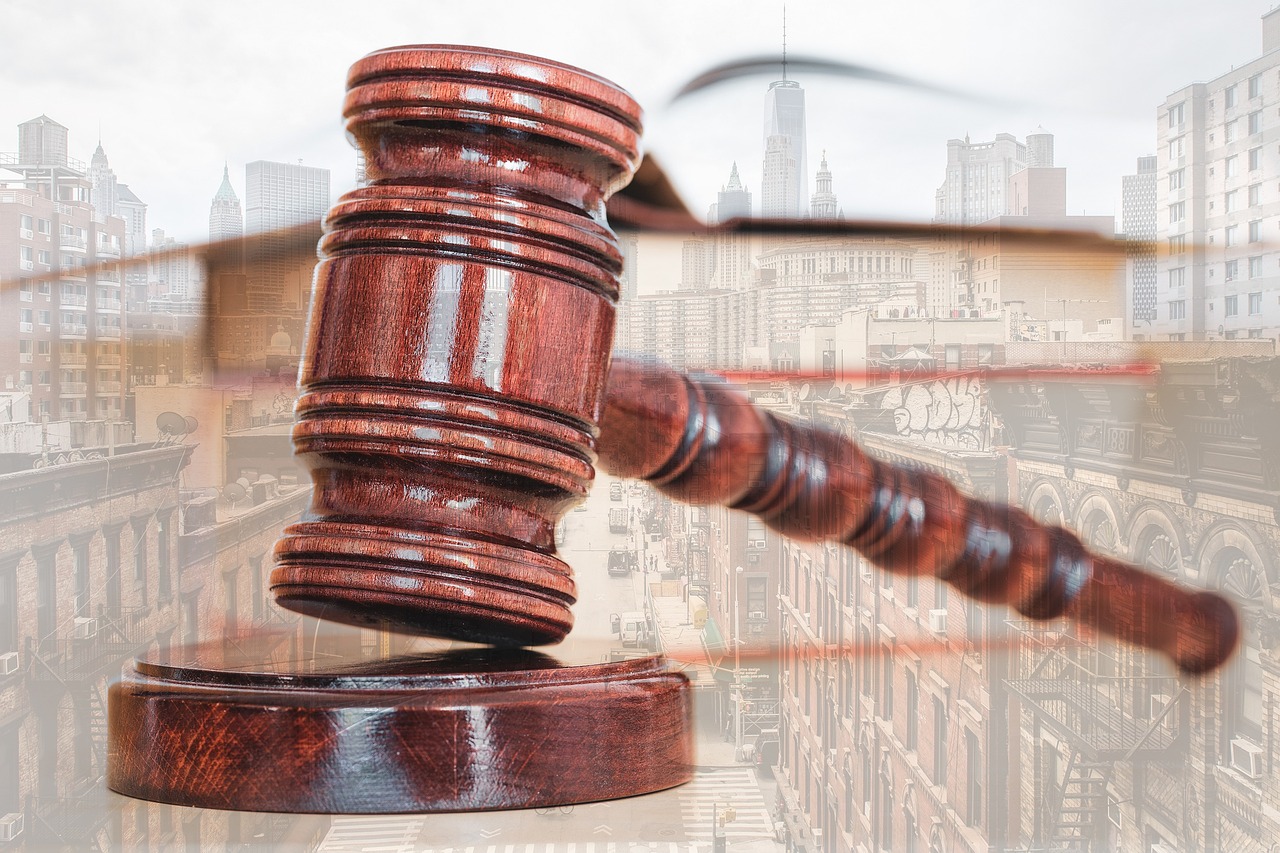The Role of Philosophy in Forming Political Systems
Philosophy and politics are intertwined in a dance as old as civilization itself. The role of philosophy in shaping political systems is akin to the foundation of a house; without it, everything else crumbles. From the ancient musings of Socrates to the contemporary debates of modern thinkers, philosophical thought has been the compass guiding societies in their quest for governance, ethics, and justice. But how exactly does philosophy influence political structures? Let's embark on this enlightening journey to uncover the profound impact of philosophical ideas on political systems throughout history.
At its core, philosophy provides the framework for understanding the principles that underpin political authority. It raises essential questions: What is justice? What rights do individuals possess? How should power be distributed? These inquiries are not merely academic; they resonate in the very fabric of our daily lives, influencing laws, policies, and societal norms. The philosophical discourse around governance often leads to the creation of political ideologies that shape how societies operate, from democracies to authoritarian regimes.
Consider the ancient Greeks, who were among the first to systematically examine political life through a philosophical lens. Thinkers like Plato and Aristotle introduced concepts of justice, virtue, and the ideal state, laying the groundwork for future political thought. Plato’s vision of a philosopher-king highlighted the importance of wisdom in leadership, while Aristotle’s empirical approach emphasized the significance of observing political systems in action. Their insights continue to echo in modern political theory, reminding us that the quest for a just society is a timeless endeavor.
As we traverse through history, we encounter a plethora of philosophers whose ideas have left indelible marks on political systems. The likes of Hobbes, Locke, and Rousseau revolutionized our understanding of the social contract, a concept that remains pivotal in discussions about the legitimacy of government. These thinkers grappled with the balance between individual rights and societal order, each offering unique perspectives that shaped the evolution of political thought and practice.
In essence, the interplay between philosophy and politics is a rich tapestry woven from centuries of inquiry and debate. It invites us to reflect on our values, question our assumptions, and strive for a political landscape that aligns with our ethical beliefs. As we delve deeper into specific philosophical contributions, we will see how these ideas not only inform political theory but also influence the practical realities of governance in our contemporary world.
- How does philosophy influence modern political systems?
Philosophy shapes modern political systems by providing foundational ideas about justice, rights, and governance that inform laws and policies. - Who are the key philosophers in political thought?
Key philosophers include Plato, Aristotle, Hobbes, Locke, Rousseau, and John Rawls, each contributing unique insights into the nature of governance and authority. - What is social contract theory?
Social contract theory posits that individuals consent to form governments that protect their rights and maintain order, highlighting the relationship between citizens and the state. - Why is ethics important in politics?
Ethics provides the moral framework that legitimizes political authority and guides decision-making in governance, ensuring that power is exercised justly.

Historical Foundations of Political Philosophy
The origins of political philosophy are as ancient as civilization itself. As societies began to form, thinkers sought to understand the nature of governance, justice, and the role of individuals within a community. This exploration laid the groundwork for modern political thought, influencing how we perceive authority and our responsibilities as citizens. Early philosophers like Plato and Aristotle emerged from this intellectual cradle, offering insights that still resonate today.
Plato, in his seminal work The Republic, introduced the idea of an ideal state governed by philosopher-kings. He argued that only those with a deep understanding of justice and virtue should hold power. This notion raises a tantalizing question: should leaders be chosen based on wisdom rather than popularity? Plato's vision was not just about governance; it was about creating a society where the common good prevailed over individual interests. His allegory of the cave illustrates how education and enlightenment are essential for a just society, suggesting that most people live in ignorance, only seeing shadows of reality.
On the other hand, Aristotle took a more pragmatic approach. He viewed politics as a natural extension of human relationships and emphasized the importance of virtue ethics. In his work Politics, Aristotle categorized governments into three legitimate forms: monarchy, aristocracy, and polity, alongside their corrupt counterparts: tyranny, oligarchy, and democracy. He believed that the best political system is one that promotes the common good and allows citizens to achieve their full potential. This perspective invites us to consider: how do we define the 'common good' in a diverse society?
The influence of these early thinkers extends beyond their lifetimes, shaping the discourse around political systems for centuries. Their ideas sparked debates that have led to the evolution of various governance models, each reflecting the values and ethics of their time. As we examine the historical foundations of political philosophy, we recognize a tapestry woven from the threads of ethics, justice, and human nature. This rich heritage continues to inform our understanding of political legitimacy and authority.
As we delve deeper into the contributions of later philosophers, we must appreciate how the seeds planted by Plato and Aristotle have grown into a diverse array of political theories. These theories not only address the structure of governments but also raise critical questions about the rights of individuals and the responsibilities of those in power. To this day, we grapple with the implications of their philosophies, pondering how they apply to contemporary issues such as democracy, human rights, and social justice.
In summary, the historical foundations of political philosophy remind us that the quest for a just society is an ongoing dialogue. It is a conversation that began with ancient thinkers and continues to evolve as we strive to understand the complexities of governance and the human experience. As we move forward in this exploration, we will encounter pivotal figures whose ideas have profoundly shaped the political landscape, paving the way for modern theories and practices.

Key Philosophers and Their Contributions
The landscape of political thought has been profoundly shaped by a number of key philosophers whose ideas continue to resonate in contemporary governance. These thinkers have not only questioned the status quo but have also laid down frameworks that help us understand the intricacies of power, authority, and individual rights. Among these intellectual giants, figures such as Thomas Hobbes, John Locke, and Jean-Jacques Rousseau stand out for their groundbreaking contributions to political philosophy.
Each philosopher approached the concept of governance from unique angles, providing insights that have influenced various political systems around the world. For instance, Hobbes, writing in the turbulent context of the English Civil War, argued for a powerful sovereign authority to maintain peace and prevent societal chaos. His work, Leviathan, portrays a grim view of human nature and posits that without a strong ruler, life would be "solitary, poor, nasty, brutish, and short." This perspective has led to discussions about the balance between authority and individual freedoms, a theme that continues to be relevant today.
On the other hand, John Locke offered a more optimistic view of human nature. His writings, particularly in Two Treatises of Government, emphasize the importance of individual rights and the idea that governments should be built on the consent of the governed. Locke's assertion that individuals possess natural rights to life, liberty, and property has become a cornerstone of modern democratic thought. His ideas laid the groundwork for liberal democracy, influencing the framers of the United States Constitution and other democratic documents worldwide.
Then we have Jean-Jacques Rousseau, whose work diverged from both Hobbes and Locke. Rousseau's concept of the "general will" suggests that true political authority lies with the collective will of the people, rather than in a monarch or ruling class. In his seminal work, The Social Contract, he famously states, "Man is born free, and everywhere he is in chains." This powerful assertion challenges us to consider how societal structures can oppress individual freedom, and it has inspired countless movements advocating for social justice and equality.
These three philosophers represent just a fraction of the rich tapestry of political thought. Their ideas can be summarized as follows:
| Philosopher | Key Ideas | Influence on Political Systems |
|---|---|---|
| Thomas Hobbes | Strong central authority to prevent chaos | Justification for absolute monarchy and authoritarian regimes |
| John Locke | Natural rights and government by consent | Foundation of liberal democracy and constitutional government |
| Jean-Jacques Rousseau | General will and collective sovereignty | Influence on democratic theory and social movements |
As we delve deeper into the contributions of these philosophers, it becomes clear that their ideas do not exist in isolation. They interact, contradict, and build upon one another, creating a complex dialogue that continues to shape our understanding of politics today. The debates initiated by these thinkers have paved the way for modern political ideologies, making their work essential for anyone interested in the foundations of political systems.
Understanding the contributions of these key philosophers is not just an academic exercise; it helps us navigate the challenges of our current political landscape. With issues like governance, individual rights, and social justice at the forefront of public discourse, their ideas remain as relevant as ever. So, the next time you engage in a political discussion, think about how these philosophical foundations influence your views and the systems we live under.
- What is the main idea behind Hobbes' political philosophy? Hobbes believed in a strong central authority to prevent chaos and maintain order in society.
- How did Locke influence modern democracy? Locke's emphasis on natural rights and government by consent laid the groundwork for liberal democratic principles.
- What role does Rousseau's concept of the general will play in politics? Rousseau's idea suggests that true political authority should reflect the collective will of the people, promoting social equality and justice.

Social Contract Theory
The concept of stands as a pivotal pillar in the realm of political philosophy, acting as a bridge between individual rights and the authority of the state. At its core, this theory posits that individuals consent, either explicitly or implicitly, to surrender some of their freedoms and submit to the authority of a governing body in exchange for protection of their remaining rights. This notion is not merely academic; it has profound implications for how we understand governance and the legitimacy of political power.
Imagine a group of people living in a state of nature—where chaos reigns, and survival is a daily struggle. In such a scenario, the social contract emerges as a solution, a mutual agreement to form a society that can provide security and order. Think of it as a trade-off: you give up certain liberties for the sake of collective safety and the promise of a structured community. This foundational idea has been explored and expanded upon by numerous philosophers, each adding their unique perspective to the discourse.
One of the most significant aspects of social contract theory is its ability to justify the legitimacy of government. When citizens agree to this contract, they are not just following orders; they are participating in a mutual agreement that legitimizes the authority of the state. This relationship is crucial in understanding modern democracies, where the government derives its power from the consent of the governed. It raises essential questions: What happens if the government fails to uphold its end of the bargain? Can citizens reclaim their rights? These questions highlight the dynamic nature of the social contract and its relevance in contemporary political discussions.
To further illustrate the importance of social contract theory, let's examine the contributions of three key thinkers:
| Philosopher | Key Ideas |
|---|---|
| Thomas Hobbes | Advocated for a strong central authority to prevent chaos, emphasizing the need for absolute power to maintain order. |
| John Locke | Highlighted individual rights and government by consent, arguing that the government's legitimacy comes from protecting those rights. |
| Jean-Jacques Rousseau | Proposed that true sovereignty lies with the people, and governance should reflect the general will. |
As we can see, these thinkers not only shaped the theory itself but also influenced the political systems we see today. Their ideas have sparked revolutions and inspired the formation of democratic institutions worldwide. The social contract is not just a theoretical framework; it is a living concept that continues to evolve, reflecting the changing values and needs of society.
In conclusion, social contract theory serves as a vital lens through which we can examine the legitimacy of political authority and the rights of individuals. It compels us to consider the balance between freedom and security, reminding us that our political systems are built on the agreements we make with one another. As we navigate the complexities of governance today, the principles of the social contract remain as relevant as ever, urging us to engage thoughtfully in the ongoing conversation about power, rights, and responsibilities.
- What is Social Contract Theory? - It is a philosophical concept that suggests individuals consent to form a government in exchange for protection of their rights.
- Who are the key philosophers associated with Social Contract Theory? - Key figures include Thomas Hobbes, John Locke, and Jean-Jacques Rousseau.
- How does Social Contract Theory relate to modern democracy? - It underlines the idea that government authority derives from the consent of the governed, emphasizing the importance of individual rights.
- What happens if a government breaks the social contract? - Philosophers like Locke argue that citizens have the right to revolt against an unjust government that fails to protect their rights.

Thomas Hobbes' Viewpoint
Thomas Hobbes, a towering figure in political philosophy, presented ideas that continue to resonate in discussions about governance and authority. His most famous work, Leviathan, published in 1651, paints a stark picture of human nature and the necessity of a powerful government. Hobbes believed that in a state of nature, individuals are driven by self-interest and are in constant conflict, leading to a chaotic existence. He famously asserted that life without a governing authority would be "solitary, poor, nasty, brutish, and short." This vivid description captures his belief that only a strong, centralized power could maintain order and prevent societal collapse.
Hobbes introduced the concept of the social contract, which posits that individuals consent, either explicitly or implicitly, to surrender some of their freedoms and submit to the authority of a ruler or governing body in exchange for protection and social order. This agreement forms the foundation of political legitimacy in Hobbes' view. The ruler, or 'sovereign,' holds absolute power to ensure peace and security, a necessity in Hobbes' eyes to avoid the anarchy of the natural state.
One of the key elements of Hobbes' philosophy is the idea that the authority of the sovereign must be undivided and absolute. He argued that any division of power could lead to instability and conflict, undermining the very order that the social contract is designed to protect. In his perspective, the sovereign acts as a collective will of the people, embodying their desires for peace and stability. This leads to a question that often arises in discussions about Hobbes: Is absolute power justified if it ensures peace? While some may argue that it is a necessary evil, others contend that it risks tyranny and oppression.
Hobbes' viewpoint has sparked significant debate among political theorists. Critics argue that his emphasis on a powerful sovereign overlooks the importance of individual rights and freedoms. They assert that a government should be a reflection of the people's will rather than an authoritarian figure ruling over them. Yet, Hobbes' insights into human nature and the need for order remain relevant, especially in times of crisis when the balance between liberty and security is tested.
In summary, Hobbes' contributions to political philosophy underscore a fundamental tension in governance: the balance between authority and individual freedom. His work serves as a crucial reference point for understanding the evolution of political systems and the ongoing debates about the role of government in society.
- What is Hobbes' view on human nature? Hobbes believed that humans are inherently self-interested and that this leads to conflict in the absence of a strong governing authority.
- What is the social contract according to Hobbes? The social contract is an agreement where individuals relinquish some freedoms to a sovereign power in exchange for protection and order.
- Why does Hobbes argue for an absolute sovereign? He argues that an absolute sovereign is necessary to prevent chaos and ensure societal stability.
- How does Hobbes' philosophy apply to modern governance? Hobbes' ideas continue to influence discussions about the balance between security and individual rights in contemporary political systems.

John Locke's Perspective
When we dive into the world of political philosophy, one name that stands out is John Locke. His ideas were revolutionary, and they laid the foundation for modern liberal democracy. Locke's perspective on the social contract is particularly fascinating because it shifts the focus from the authority of the ruler to the rights of the individual. Unlike his predecessor Hobbes, who viewed humans as inherently self-interested and in need of a strong sovereign to maintain order, Locke believed that people are rational beings capable of governing themselves. This fundamental shift in thought not only changed the way we view government but also how we perceive our own rights.
Locke’s social contract theory posits that individuals consent to form governments to protect their natural rights, which he identified as life, liberty, and property. According to Locke, the legitimacy of government hinges on its ability to uphold these rights. If a government fails in this duty, Locke argued that citizens have the right to revolt. This idea was revolutionary for its time and has had a lasting impact on political systems around the world. It laid the groundwork for the concept of government by consent, which is a cornerstone of democratic societies today.
Locke's influence can be seen in several key documents, most notably the United States Declaration of Independence. The famous phrase "life, liberty, and the pursuit of happiness" echoes Locke’s principles, emphasizing the importance of individual rights. Moreover, his ideas about the separation of powers and checks and balances have been instrumental in shaping modern governance structures. By advocating for a government that is accountable to the people, Locke helped to foster a political environment where individual freedoms could flourish.
To further illustrate Locke's contributions, let’s consider a few of his key ideas:
- Natural Rights: The belief that individuals possess rights inherent to their existence.
- Consent of the Governed: The idea that a legitimate government derives its authority from the consent of the people.
- Right to Revolt: The principle that citizens have the right to overthrow a government that does not protect their rights.
Locke's perspective on governance emphasizes a moral obligation for rulers to respect the rights of their citizens. His thoughts encourage us to reflect on the responsibilities of both governments and individuals in a democratic society. Are we, as citizens, aware of our rights? Are we vigilant in holding our leaders accountable? Locke's philosophy invites us to engage actively in the political process, ensuring that our voices are heard and our rights protected.
In conclusion, John Locke's contributions to political philosophy are invaluable. His emphasis on individual rights and government accountability has shaped not just political theory, but also the practical workings of modern democracies. By understanding Locke's perspective, we can better appreciate the political systems that govern our lives today.

Utilitarianism and Governance
Utilitarianism, a philosophical doctrine primarily associated with the thinkers Jeremy Bentham and John Stuart Mill, presents a compelling framework for understanding governance. At its core, utilitarianism posits that the best action or policy is the one that maximizes overall happiness or utility. This idea, while seemingly straightforward, has profound implications for political decision-making and public policy. Imagine a world where every governmental decision is evaluated based on its potential to enhance the well-being of the majority. Sounds ideal, right? However, the practical application of this theory often leads to complex moral dilemmas.
In governance, utilitarian principles can guide leaders in making decisions that aim to produce the greatest good for the greatest number. This approach can be particularly effective in democratic societies where the welfare of the populace is paramount. For instance, when considering policies on healthcare, education, or public safety, a utilitarian perspective encourages policymakers to assess the potential outcomes of their decisions on the majority of citizens. However, this raises an important question: what happens to the rights and needs of minorities? This is where utilitarianism often faces criticism, as it may justify actions that harm a small group if it benefits a larger population.
To illustrate the impact of utilitarianism on governance, let’s consider a few key areas:
- Public Policy: Utilitarianism can influence legislation by prioritizing policies that are expected to yield the highest overall benefit, such as environmental regulations aimed at reducing pollution for the collective good.
- Resource Allocation: Governments may use utilitarian principles to determine how to allocate limited resources, ensuring that funds are directed towards programs that will provide the most significant benefit to the population.
- Social Welfare: In the context of social programs, a utilitarian approach might advocate for initiatives that assist the most disadvantaged members of society, thereby increasing overall societal happiness.
However, the implementation of utilitarianism in governance is not without its challenges. One major critique is the difficulty in measuring happiness or utility. How do we quantify the happiness of individuals? Is it fair to prioritize the majority's happiness over the rights of the minority? These questions highlight the tension between utilitarianism and other ethical frameworks, such as deontological ethics, which emphasize the importance of individual rights and duties regardless of the outcome.
Moreover, the potential for abuse exists when utilitarian principles are applied without careful consideration. History has shown us instances where governments justified oppressive measures in the name of the greater good. This raises a critical point: while utilitarianism can serve as a guiding principle for governance, it must be balanced with ethical considerations that protect individual rights and freedoms.
In conclusion, utilitarianism presents a powerful lens through which to view governance and decision-making processes. It challenges leaders to think about the broader implications of their actions and strive for policies that enhance collective well-being. Yet, as with any philosophical doctrine, it is essential to approach utilitarianism with a nuanced understanding, ensuring that the pursuit of happiness does not come at the expense of justice and individual rights.
- What is utilitarianism? Utilitarianism is a philosophical theory that suggests the best action is the one that maximizes overall happiness or utility.
- How does utilitarianism influence governance? It guides policymakers to focus on actions that benefit the majority, shaping public policy and resource allocation.
- What are the criticisms of utilitarianism? Critics argue that it can overlook individual rights and may justify harmful actions against minorities for the sake of the majority's happiness.
- Who are the key figures associated with utilitarianism? The primary figures include Jeremy Bentham and John Stuart Mill, who developed and popularized the theory.

Ethics and Political Legitimacy
The relationship between ethics and political legitimacy is a cornerstone of modern governance. It raises fundamental questions: What makes a government legitimate? Why should citizens obey the laws set forth by their leaders? These inquiries delve deep into the philosophical realm, where the moral foundations of political authority are scrutinized. At its core, political legitimacy is about the right to rule, and this right must be grounded in ethical principles that resonate with the populace. If a government lacks ethical justification, it risks losing the trust and support of its citizens, leading to instability and dissent.
Throughout history, various philosophical frameworks have attempted to define the relationship between ethics and governance. For instance, the social contract theory posits that governments derive their authority from the consent of the governed. This idea suggests that citizens agree to surrender certain freedoms in exchange for protection and social order. But what happens when a government betrays this contract? When ethical standards are compromised, the legitimacy of political authority comes into question. This dynamic is crucial in understanding revolutions and calls for reform, as seen in the American Revolution and the French Revolution, where citizens rose against perceived injustices.
Moreover, the ethical considerations of political legitimacy extend into contemporary discussions about governance. For example, leaders are often evaluated based on their commitment to justice, equality, and the common good. The principles of utilitarianism, which advocate for the greatest good for the greatest number, challenge political systems to prioritize the welfare of all citizens. However, this raises ethical dilemmas: can the needs of the majority justify the oppression of a minority? Such questions highlight the tension between majority rule and the protection of individual rights, a theme that resonates in today’s political climate.
Another significant contribution to the discourse on ethics and political legitimacy comes from John Rawls. His theory of justice as fairness argues for principles that ensure equitable distribution of resources and opportunities. According to Rawls, a just society is one where social and economic inequalities are arranged to benefit the least advantaged members. This perspective challenges political systems to reflect on their ethical responsibilities and the legitimacy of their policies. In a world where wealth and power are often concentrated in the hands of a few, Rawls’ ideas serve as a beacon for those advocating for a more just and equitable society.
In addition to these philosophical frameworks, the rise of feminist political philosophy has further enriched the conversation around ethics and legitimacy. Feminist theorists critique traditional political structures and advocate for gender equality, emphasizing that any legitimate political system must address the systemic inequalities faced by women and marginalized groups. This perspective not only broadens the definition of political legitimacy but also challenges existing norms and practices that perpetuate injustice.
In summary, the intertwining of ethics and political legitimacy is a complex and ever-evolving dialogue. As societies grapple with issues of justice, equality, and authority, the philosophical underpinnings of governance become increasingly significant. Understanding these concepts not only enriches our comprehension of political systems but also empowers citizens to demand accountability and ethical governance from their leaders.
- What is political legitimacy? Political legitimacy refers to the right and acceptance of an authority, usually a governing law or a regime.
- How do ethics influence political systems? Ethics provide the moral framework that guides laws, policies, and the behavior of political leaders, ensuring that governance aligns with societal values.
- What is the social contract theory? Social contract theory is a philosophical concept that suggests individuals consent to form a society and accept certain obligations in exchange for protection and social order.
- Why is justice important in political philosophy? Justice ensures that individuals are treated fairly and equitably, which is essential for maintaining legitimacy and trust in political systems.

Justice as Fairness
John Rawls' theory of has sparked a profound conversation in the realm of political philosophy. At its core, this theory proposes that the principles of justice should be determined by what individuals would agree upon from an original position of equality. Imagine a group of people deciding the rules of a game without knowing their roles in it—this thought experiment, known as the veil of ignorance, is central to Rawls' argument. By removing personal biases and social advantages, individuals are more likely to create a system that is fair and just for everyone.
Rawls identifies two key principles of justice that emerge from this hypothetical scenario. The first principle guarantees the right to basic liberties for all citizens—freedom of speech, the right to vote, and the right to personal property. The second principle addresses social and economic inequalities, suggesting that they should be arranged to benefit the least advantaged members of society. This dual approach not only emphasizes individual rights but also promotes a sense of community and responsibility towards one another.
To further illustrate Rawls' theory, consider the following table that contrasts his principles with traditional views on justice:
| Aspect | Justice as Fairness | Traditional Views |
|---|---|---|
| Basic Liberties | Guaranteed for all | Often prioritized for the privileged |
| Social Inequality | Must benefit the least advantaged | Accepted as a natural order |
| Decision-Making | From a position of equality | Based on existing power structures |
Rawls' vision of justice has influenced various political movements and policies aimed at promoting equity and fairness. For instance, many social programs and welfare policies can be seen as practical applications of his principles, striving to uplift those who are most in need. However, despite its profound influence, Rawls' theory is not without criticism. Some argue that it oversimplifies complex social dynamics or that it fails to address the root causes of inequality. Yet, the ongoing discourse surrounding justice as fairness continues to challenge and refine our understanding of what it means to live in a just society.
In essence, Rawls' theory invites us to reflect on our own societal structures and consider whether they truly promote fairness for all. Are we, as a society, willing to engage in the hard conversations necessary to ensure that justice is not just an ideal, but a tangible reality? As we navigate the complexities of governance and ethics, Rawls' insights remind us that the pursuit of justice is an ongoing journey, one that requires both critical thought and compassionate action.
- What is the veil of ignorance? The veil of ignorance is a thought experiment proposed by John Rawls to help determine principles of justice by imagining that individuals do not know their social status, abilities, or personal characteristics when creating a fair society.
- How does justice as fairness differ from utilitarianism? While utilitarianism focuses on achieving the greatest good for the greatest number, justice as fairness emphasizes individual rights and the fair treatment of all individuals, particularly the least advantaged.
- Can Rawls' principles be applied in modern politics? Yes, many contemporary policies aimed at reducing inequality and promoting social welfare can be seen as applications of Rawls' principles of justice as fairness.

Feminist Political Philosophy
Feminist political philosophy is a vibrant and critical field that challenges the traditional narratives of political theory, which have often marginalized or completely excluded women's voices and experiences. At its core, feminist political philosophy seeks to interrogate and dismantle the structures of power that perpetuate gender inequalities. It poses essential questions: What does justice mean in a world where gender disparities exist? and How can political systems be reshaped to promote true equality? By examining these questions, feminist theorists strive to create a more inclusive framework for understanding governance and political legitimacy.
One of the key contributions of feminist political philosophy is its critique of the so-called "universal" principles that have dominated political thought. Traditional theories often assume a neutral subject, usually a white, male citizen, which overlooks the diverse experiences of women and other marginalized groups. This exclusion not only skews our understanding of political concepts but also limits the potential for genuine democratic engagement. Feminist theorists argue that a truly equitable society must acknowledge and incorporate the perspectives of all individuals, particularly those who have been historically oppressed.
Moreover, feminist political philosophy emphasizes the significance of intersectionality, a term coined by scholar Kimberlé Crenshaw. Intersectionality recognizes that individuals experience oppression in varying degrees and forms based on their race, class, sexuality, and other identity markers. This approach enriches our understanding of political structures by highlighting how these intersecting identities influence individuals' experiences with power and governance. For instance, a woman of color may face different challenges than a white woman, and these differences must be taken into account when crafting policies aimed at promoting gender equality.
Feminist political philosophers also engage with concepts of power and authority. They argue that traditional notions of power often align with patriarchal values, which can lead to the exclusion of women from positions of authority. By rethinking power dynamics, feminist theorists advocate for a more participatory approach to governance, where women and marginalized groups have a voice in decision-making processes. This shift not only enhances democratic practices but also fosters a political culture that values empathy and collaboration.
In contemporary political discourse, feminist political philosophy has influenced various policies and movements. For example, the push for reproductive rights, equal pay, and anti-violence legislation are all rooted in feminist critiques of political structures. These movements highlight the need for policies that address the specific needs and rights of women, thus promoting a more just society. As we continue to grapple with issues of inequality, feminist political philosophy remains a crucial lens through which we can analyze and advocate for change.
In summary, feminist political philosophy is not merely an academic pursuit; it is a call to action. It urges us to rethink the foundations of our political systems and to ensure that they serve the interests of all, not just a privileged few. By embracing the insights of feminist theorists, we can work towards a more equitable and just society, where every voice is heard and valued.
- What is feminist political philosophy?
Feminist political philosophy critiques traditional political theories and advocates for gender equality, emphasizing the importance of including women's voices in political discourse. - How does intersectionality relate to feminist political philosophy?
Intersectionality highlights how different forms of oppression intersect, affecting individuals' experiences with power and governance based on their diverse identities. - What are some key issues addressed by feminist political philosophy?
Feminist political philosophy addresses issues such as reproductive rights, gender-based violence, and economic inequality, advocating for policies that promote true equality.
Frequently Asked Questions
- What is the significance of philosophy in political systems?
Philosophy plays a crucial role in shaping political systems by providing the foundational ideas that influence governance, ethics, and societal values. It helps us understand the principles behind laws and policies, guiding the moral compass of political authority.
- Who were the key philosophers that influenced political thought?
Some of the most influential philosophers include Plato, Aristotle, Hobbes, Locke, and Rousseau. Each of these thinkers contributed unique ideas that have significantly impacted the development of contemporary political systems, from concepts of justice to the social contract.
- What is social contract theory?
Social contract theory is a fundamental concept in political philosophy that explores the legitimacy of government and the rights of individuals. It suggests that individuals consent to form a government in exchange for protection and the upholding of their rights, establishing a mutual agreement between the governed and the governing.
- How did Thomas Hobbes view the social contract?
Hobbes believed that a strong central authority was necessary to prevent chaos and maintain order. In his view, individuals would surrender certain freedoms to a sovereign power in exchange for security and stability, emphasizing the need for a powerful government to avoid the state of nature, which he described as "solitary, poor, nasty, brutish, and short."
- What was John Locke's perspective on the social contract?
Locke’s interpretation of the social contract focused on individual rights and the idea of government by consent. He argued that the primary role of government is to protect the natural rights of life, liberty, and property, and that authority should be derived from the consent of the governed, laying the groundwork for liberal democracy.
- How does utilitarianism relate to governance?
Utilitarianism, championed by philosophers like Jeremy Bentham and John Stuart Mill, advocates for making decisions that promote the greatest good for the greatest number. This principle influences political decision-making by encouraging policies that aim to maximize overall happiness and welfare within society.
- What is the connection between ethics and political legitimacy?
The relationship between ethics and political legitimacy is vital, as ethical principles provide the moral foundation for political authority. A government is considered legitimate when it aligns with ethical standards and promotes justice, fairness, and the common good, ensuring that its authority is accepted by its citizens.
- What is John Rawls' theory of justice as fairness?
John Rawls' theory of justice as fairness introduces principles that ensure equitable distribution of resources and opportunities. He argues that a just society is one where inequalities are arranged to benefit the least advantaged, promoting fairness and equality in political discourse.
- How does feminist political philosophy impact modern politics?
Feminist political philosophy critiques traditional political theories, advocating for gender equality and the inclusion of women’s perspectives in political discourse. It has significantly influenced contemporary policies and practices, pushing for reforms that address gender disparities and promote equal representation.



















